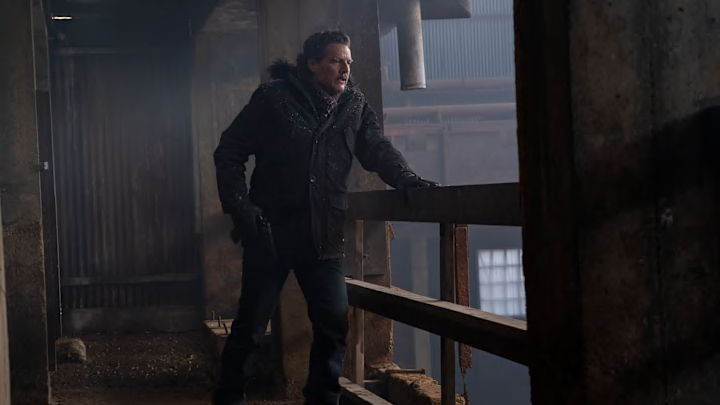Game of Thrones became a hugely popular TV series for a lot of reasons: the sex and violence, the huge battle scenes, the complex web of characters, etc. But there were a couple of times in its history when it popped in popularity. The first was at the end of the first season, when Ned Stark (Sean Bean), the purported main character of the series, was executed. The second was at the end of season 3, when Ned's wife Catelyn and son Robb (Michelle Fairley and Richard Madden) were brutally murdered right in the middle of a campaign to get revenge for Ned's death. And the third — and the show rode this wave of notoriety right through to the end of the series — came at the end of season 5, when Jon Snow, the show's last white knight leading man, was stabbed to death by his own men.
It's expected that lead characters will survive to lead series. Game of Thrones bucked this expectation once, twice, thrice, and each time was rewarded. Again, killing characters isn't the reason the show was a success; it had to execute on those twists and be a good show besides. But it shows that people are thrilled when you give them something both unexpected and earned.
In the years since, I've been surprised that more shows haven't returned to that well and killed off main characters. Some shows have gestured towards it, but mostly pull their punches. Captain Philippa Georgiou, played by Oscar winner Michelle Yeoh, dies very early in Star Trek: Discovery, only to be replaced with an alternate universe version of herself. The third season of Stranger Things looked like it was going to kill off Sheriff Hopper (David Harbour), long the gruff avuncular soul of the show, only to bring him back for an expanded arc in season 4. Perhaps the most comparable lead character death I can think of came in the season 7 premiere of The Walking Dead, where the characters of Glenn (Steven Yeun) and Abraham (Michael Cudlitz) were both brutally killed off. Not for nothing, but that episode is one of the most-watched in the show's history and inspired tons of discussion at the time.
So if taking this sort of bold swing is so popular with people, why isn't it done more often? I think convention wins out. I think the rules that Game of Thrones broke are still the rules, which is why it still comes as a shock when a lead character dies. And that brings us to...

The Last of Us goes where too few shows dare to tread
On the latest episode of The Last of Us, Joel (Pedro Pascal) is brutally killed by Abby (Kaitlyn Dever), who's getting revenge for Joel killing her father in the season 1 finale. Joel and Ellie (Bella Ramsey) were the main characters of season 1. Now Joel is dead, and Ellie will spend the rest of the season (and beyond) trying to get her own revenge.
This twist is lifted directly from the video game The Last of Us Part II. When that game came out in 2020, fans were livid. There was an enormous backlash against the game, and against game director Neil Druckmann, for taking this step, for betraying fans, for killing their favorite character and making them play as a couple of girls for the rest of the game. It was intense, but the game still sold over 10 million units by 2022, so someone was interested.
With time, attitudes towards the game and that monster twist softened, and now many look at it as a bold choice that pushed the story into interesting new places. That certainly seems to be how the television industry is looking at it. "Through the Valley" only aired a couple of days ago, but it already has 25k fan ratings on IMDb and a score of 9.5/10, the highest of any episode of The Last of Us to date.
Would things have been the same had the secret not been out there for years ahead of time? It's impossible to say. Most of the big character deaths on Game of Thrones, the ones in no small part responsible for boosting the show's profile, happened years after they'd already been set down in print by author George R.R. Martin. It was only at the very end of the series, when the show overtook Martin's books and started killing characters we weren't warned about in advance, that the show went through its own backlash, but that's a story for another day.
I don't think shows should kill off lead characters just to do it. But when they have a plan like The Last of Us and Game of Thrones, when the death of a lead character pushes the rest of the cast into interesting new territory, when it's not done just for its own sake, I wish more producers would embrace the idea. Because when they back away from the brink, like with the Hopper fakeout in Stranger Things, it feels unsatisfying. That show wanted to give fans the emotional gut punch of killing a lead character but not really go through with it, to have its cake and eat it too. Sometimes you need to dump the cake on the ground and trust that the most interesting story will come from what happens next.
To stay up to date on everything fantasy, science fiction, and WiC, follow our all-encompassing Facebook page and Twitter account, sign up for our exclusive newsletter and check out our YouTube channel.
